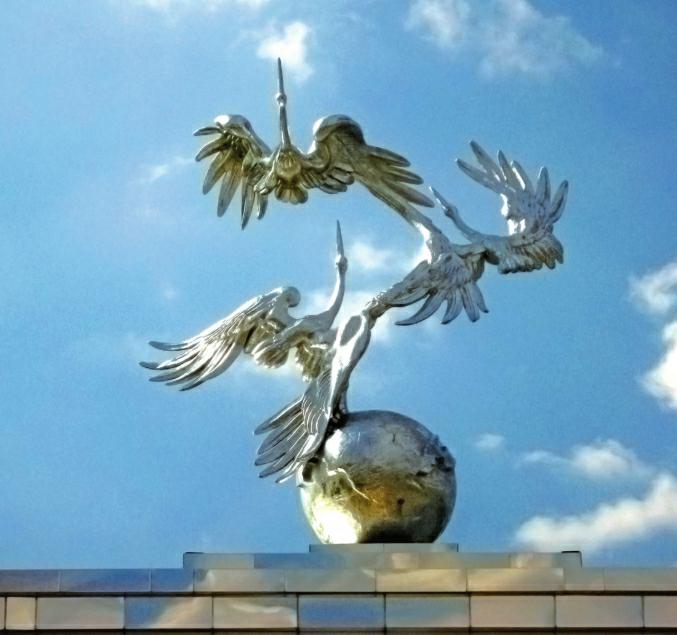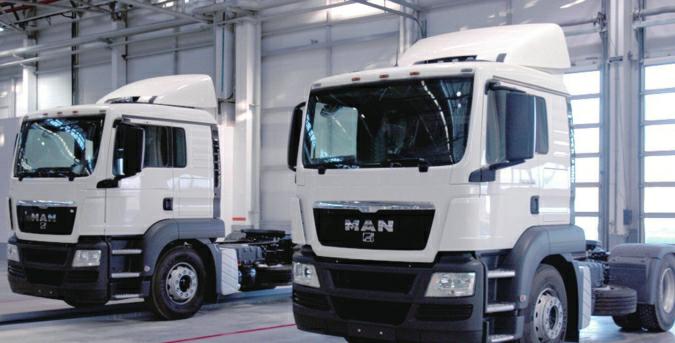Reforms in Uzbekistan
2017-10-20
Development and liberalization of Uzbekistan economy throughout the last two decades are characterized by largescale drastic reforms in the socio-economic system of the country. Increasing investment activities evidence significant improvements in business environment and the sustainable economic growth in recent years. Thus, the volume of capital investments made throughout 2016 comprised $16.6 billion, a 9.6 percent increase compared to 2015 of which foreign investments and loans amounted to $3.7 billion. Projected volume of foreign investments for 2017 is $4.5 billion. It should be noted that nearly $60 billion of foreign investments were drawn to the economy of Uzbekistan from 1991 through 2016, which allowed for accelerated implementation of modernization programs, technical and technological renewal of industries through introduction of modern technologies. With recent ongoing economic reforms and transitions the reasons to invest in Uzbekistan economy have become even more solid.
Presidential support
Following inauguration in December 2016 the President of Uzbekistan Shavkat Mirziyoyev approved an “Action Strategy for Five Priority Areas for 2017-2021” that provides, inter alia, for an active attraction of foreign investments to various sectors of the economy and regional development by improving investment climate of the country. These priority areas stipulated in the Decree, which refl ects a long-term vision of the President for the countrys future development strategy, are the following:
To further support this objective the President signed a Decree “On the Formation of the State Committee of the Republic of Uzbekistan for Investments” in March 2017, which created an authorized state body responsible for coordinating formation and implementation of a unified state investment policy and attracting foreign investments. The Committee is formed with the aim to fully develop investment potential of the country and create the most favorable conditions for attracting foreign direct investment, expand cooperation with international fi nancial institutions, leading foreign companies and banking structures, as well as increase effi ciency of foreign investment utilization.
Macroeconomic and political stability
Over the past 26 years since Uzbekistan declared independence from the Soviet Union the country has enjoyed political stability with no serious crises or political unrest. The democratic change of power through transparent elections in December 2016 is another indicator of political stability and adherence to democratic values and attitudes of the countrys leadership.
Macroeconomic stability is determined, in particular, by the positive balance of trade which averaged $808.25 million from 2006 through 2016. In addition to that Uzbekistan recorded a trade surplus of $455 million in 2016. Another indicator of stable economic growth is low external debt, which does not exceed 18.5 percent of the countrys GDP. Since 2014 the state internal debt equaled to zero, indicating healthy monetary and fiscal system. Uzbekistan has recorded a triple budget surplus for 10 consecutive years and surplus of balance of payment for over 14 years. The countrys foreign exchange reserves cover 24 months of import.
GDP growth rate
Despite the ongoing global financial and economic crisis, GDP growth rate in Uzbekistan from 2000 through 2016 has averaged 8.1 percent. According to the World Banks “Global Economic Prospects” Uzbekistan is the fifth fastest growing economy in the world with annual GDP growth rate at 7.8 percent in 2016. Furthermore, Uzbekistan has set a target to increase its GDP at least two-fold by 2030. Due to drastic structural reforms, the country intends to achieve accelerated growth of industry by bringing its share in GDP to 40 percent within the next fi ve years against 33.5 percent recorded in 2015.
Diversified industry and access to markets
In the fi rst years of independence economy of Uzbekistan has a pronounced agricultural direction, primarily concentrated on production and export of raw cotton. Economy of Uzbekistan is one of the most diversified in Central Asia. The country produces a wide range of modern cars, trucks, and high-quality agricultural machinery. Uzbekistan has recently embarked on a new phase of reforms with a “Program of Further Reform, Structural Transformation and Diversification of the Economy in the Years 2015-2019” based on such key areas as improving business environment, providing greater freedom for entrepreneurship, and giving priority to development and strengthening of the legal protection of private property. Other provisions of the Program include large-scale structural transformation of the economy, modernization and diversification of industrial production, as well as fundamental reforms of the corporate management system and introduction of modern, globally approved methods of increasing effi ciency of joint-stock companies.
With over 31 million inhabitants, a nearly half of the total population of Central Asia, Uzbekistan has the largest consumer market in the region. In addition, a Free Trade Agreement with countries of Commonwealth of Independence States(CIS) allows for the duty-free access of the countrys products to regional markets with over 300 million consumers.
Special economic zones/ tax and customs benefits
Currently there exist seven special economic zones in Uzbekistan provinces. Recently the President Shavkat Mirziyoyev has issued a Decree on the creation of seven pharmaceutical industrial zones, which will also enjoy special tax and customs benefi ts. The main objectives of the special economic and pharmaceutical zones are attraction of foreign and domestic direct investments to create modern production facilities for producing highly demanded or import-substituting products with high added value as well as creation of new modern productions in deep processing, storage and packaging of agricultural products, textile, carpet, shoe and leather goods, environmentally safe chemical, pharmaceutical, food and food processing, electrical engineering, machine building and automotive, building materials and other industry sectors.
The government has unified tax and customs regimes for all the participants of SEZ granting them a privileged status for a period of three to 10 years, depending on the volume of investments made. Companies registered within SEZ are exempt from payment of profi t tax, land tax, property tax of legal entities, tax on improvement and development of social infrastructure, single tax payment for micro firms and small enterprises, as well as mandatory contributions to the Republican road fund and the Extra-budgetary fund. Additionally, these companies are exempt from customs duties(except for customs clearance fees) on equipment, raw materials, supplies and component parts imported for own production needs, as well as construction materials not produced in the country and imported within the framework of investment project.
Overall tax burden has decreased three-fold for the past two decades. Base corporate tax rate in Uzbekistan is 7.5 percent and the single tax payment rate for micro firms and small enterprises is only 5 percent. Value-added tax rate is 20 percent. The frequency of statistical, tax and fi nancial reporting to the state authorities have been cut in half over the past years. In order to provide better opportunities for the businesses about 160 licensing procedures and 19 licensing activities have been eliminated in the past few years.
Additional information
On October 5, 2016, President Shavkat Mirziyoyev signed a decree to accelerate development of entrepreneurship, protection of private property and improvement of the business climate in Uzbekistan, whereby Ministry of Finance, the Central Bank and the State Tax Committee were put in charge to develop, within three months period, a number of proposals designed to “integrate market mechanisms of currency regulation and currency rate policy, stimulate growth of export potential, actively attract foreign direct investment and increase competitiveness of national manufacturers in external markets”.
Following the decree, starting from January 1, 2017, all kinds of unscheduled inspections of businesses (including tax inspections), except for inspections carried out due to closure of an organization, have been abolished in Uzbekistan. Furthermore, this decree relieved from administrative and criminal liability entrepreneurs who are fi rst-time offenders and who voluntarily pay compensation for debts or damage related to their business activities.
A specific post of Ombudsman has been established to protect rights and interests of businesses and help ensure legal protection of business entities and represent their interests in relations with state authorities.
The “Action Strategy for Five Priority Areas of the Republic of Uzbekistan 2017-2021”approved by President Shavkat Mirziyoyev provides, inter alia, for the development and liberalization of the economy aimed at further strengthening of macroeconomic stability and maintaining high economic growth rates, increasing competitive advantage of the country. The Strategy identifies numerous objectives including modernizing and intensively developing agriculture, continuing with institutional and structural reforms to reduce the states presence in the economy, further strengthening of protection of rights and the strategic role of private property, encouraging development of small business and private entrepreneurship, integrated and balanced socio-economic development of the regions, districts and cities, active attraction of foreign investments to various sectors of the economy and regions by improving the countrys overall investment climate.
Another law has been recently signed by President Shavkat Mirziyoyev “On Combating Corruption” on January 3, 2017 and came into force on January 4, 2017. The document is directed at complex legislative regulation of legal relations in fighting corruption, improving effi ciency of anti-corruption measures conducted by the state bodies, organizations and institutes of civil society, as well as full elimination of corruption from all spheres of public life, creating intolerance to corruption among public via improving legal awareness and legal culture. The law envisages creation of Republican InterDepartmental Commission on Combating Corruption, which will coordinate activities on fighting corruption and strengthen cooperation between various bodies. It will include representatives of society, business entities and unions as well as other institutes of civil society. Adoption of this document creates necessary legal guarantees on protecting rights and freedoms of the citizens and allows for preventing illegal encroachment on private property, illegal interference in business activities and supports growth of entrepreneurial activities and investment attractiveness of Uzbekistan.
According to the latest news, Uzbekistan may adopt a law “On International Commercial Arbitration”. The Chamber of Commerce and Industry of Uzbekistan developed the draft law. The document is aimed at regulating relations in the fi eld of creation, activity and abolishment of international commercial arbitration courts in Uzbekistan. The document will regulate all stages of arbitration process.
Following the Presidential Decree, the ban on export of the following items from Uzbekistan was lifted: cereals, flour and flour products, beef and chicken, meat and dairy products, sugar, vegetable oil, leather, fur and wool, antique furniture, non-ferrous metals, plastic packaging, silk and silk materials.
Presidential Decree “On Measures on Ensuring Rapid Development of Tourism Industry in Uzbekistan” was signed. According to the Decree, the State Committee on Development of Tourism of Uzbekistan, which was created on the base of abolished national company “Uzbektourism”, is the authorized state body in the sphere of tourism.
The Government of Uzbekistan has postponed simplification of visas obtaining procedure for tourists with 27 countries(including the United Kingdom) which was initially planned to come into force on April 1, 2017 until January 1, 2021. The Decree, which was signed on December 22, 2016, states that the decision to postpone was made in order to create required conditions and guarantee safety of lives and health of foreign tourists and the countrys citizens.
The President announced the year 2017 in Uzbekistan as the “Year of Dialogue with People and of Peoples Interests”. Under this initiative, the government agencies made sure that each has a virtual reception for reporting on problems, making queries, complaints and suggestions by the population, building on the example by the President who introduced his virtual reception when he started heading the Government in September 2016. Individuals and legal entities can address their queries, requests, complaints and suggestions directly to any government top official. The requests can be sent directly using an online form of the website, single portal of interactive state services or telephone helpline.
Education
President Shavkat Mirziyoyev is conducting reforms of higher education since his inauguration. His fi rst decree from the beginning of the presidency in September last year concerned youth policy. On April 20, Mirziyoyev took additional measures, signing a long-term program of higher education reform.
The plan outlines the reforms aimed at the development of higher institutions in Uzbekistan by 2021. One of the planned reforms is aimed at increasing the relatively small number of places at universities (there are currently 65 higher educational institutions in the country).
According to the plan signed by President Mirziyoyev on April 20, by 2021 Uzbekistan intends to increase the number of students by 18 percent. In addition, the country is planning to introduce new education sectors in accordance with the needs of the economy and the countrys development. In 2017-2021 years Uzbekistan will spend 1.7 trillion som ($458.7 million) on the plan for the development of higher education.
According to President Mirziyoyevs decree, by July 20 this year the ministries and governmental institutions will examine international experience and make proposals on introducing a system of payment of allowances to teachers in accordance with their level of professionalism and quality of education.
The authorities also intend to attract foreign teachers, which currently are very few in Uzbekistan. “According to the new program, at least 350 teachers from Europe, Japan, South Korea and other countries are expected to be attracted annually. The special state inspection on quality control of education under the government will monitor the quality of education,” said Javohir Khatamov, a representative of the Ministry of Higher and Secondary Special Education.
Trade and investment
In the first quarter of 2017, Uzbekistan has significantly increased trade relations with the countrys major trading partners. During his fi rst visit to Astana, capital of Kazakhstan, President Shavkat Mirziyoyev agreed to sign 75 trade contracts worth $1 billion. As it was noted at the meeting, the trade turnover in 2016 between Kazakhstan and Uzbekistan was nearing $1.5 billion. In the coming years the two countries plan to bring this figure to $ 5 billion. In addition to that volume of trade with Russia the second major trading partner of Uzbekistan has been increased by staggering 260 percent to reach nearly $5 billion by the end of this year. Overall during the state visit of the President of Uzbekistan to Russia on April 4-5, more than 50 documents totaling $16 billion were signed. In May this year, Uzbekistan has signed over 100 contracts with its major trading partner China totaling $23 billion and the country has since been actively involved in participation in the Belt and Road Initiative. This initiative proposed by the Chinese Government in 2013 is aimed at promoting economic integration and free global trade. All of the abovementioned facts indicate an unprecedented expansion of trading and investment activity embarked on by the Government of Uzbekistan that is projected to expand even further.
